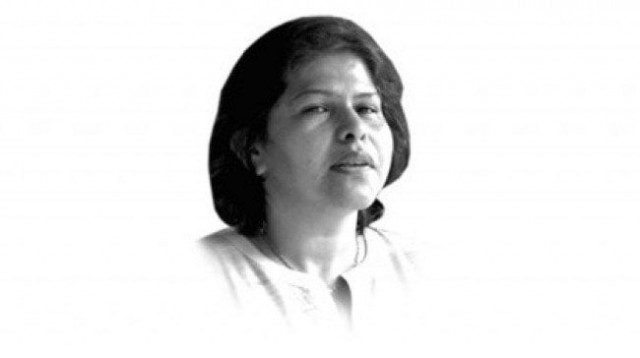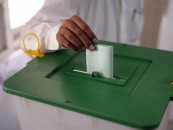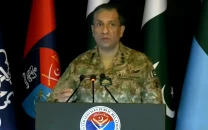Is Pakistan like Israel or North Korea?

Is Pakistan like Israel or North Korea?
But really, there are some queer similarities between the two states. The comparison, however, is more in the strain of a ‘slip of tongue’ because the similarities between the two countries are of a different nature. For instance, both have evolved into national-religious security states mired in a deep sense of insecurity which they cannot get rid of primarily due to the national narrative being frozen in history. Furthermore, the security establishments and governments of Israel and Pakistan are fixated on a military solution to the problem which has undermined alternatives to conflict resolution and influenced the personality of the state and its society as well. In short, due to problems of birth and history, both countries have evolved as highly insecure states where the politically liberal elements seem to be on the back foot. In fact, there is little chance of the liberal elements to regain strength in both Israel and Pakistan. The religious-national discourse in both places has now taken a life of its own and so it almost eliminates the possibility of the development of a more normal worldview. Smaller ethnic groups then get ostracised and brutalised due to absence of their share in formulating the discourse. The national narrative or discourse, it must be pointed out, is not about a set of slogans or some political manifesto, but it is a nation’s DNA. What a nation stands for, what are its values and who has ownership of the state are determined by the design of the narrative.
Another similarity pertains to the options which possession of nuclear weapons provides state functionaries in negotiating with its own population as well as the world outside. Besides security, nuclear weapons were developed to give the respective states greater leverage in terms of their security. A concern both countries share is what if the US abandons them. In that case, nuclear weapons provide a major psychological relief and a political opportunity.
Of course, the similarity ends here. One of the major disparities between the two countries is the health of state institutions. Tel Aviv could boost of sustaining its civilian institutions and allowing parallel institutions to grow. The Israeli state has huge problems but it seems to provide relative better services to those considered its citizens.
It could be possible, as some might suggest, that given the collapse of institutions or the emergence of military as the sole institution, Pakistan resembles North Korea rather than Israel. No one is suggesting that their situations are not different but it is about the personality of the state — a cowboy and a child at the same time. The ruling establishment in Pyongyang holds its weapons, including the nuclear arsenal, close to its heart and refuses to accept alternative means of national development. In fact, one of the other possible similarities between the two states is that their leadership considers nuclear weapons vital for negotiating resources from the international community. Since the world is afraid of North Korea and Pakistan doing anything untoward or collapsing, or imagines that some unsavory elements might take over its military capacity, resources continue to roll in. Most interestingly, the leadership banks on its ability to blackmail the international community. One has sat through television programs listening to official spokespersons pontificating about how the world can just not ignore to not help Pakistan. Helping the country, incidentally always means, giving money in return for not threatening the world.
The saddest part of being North Korea like is that at the end of the day the state dedicates itself to keeping the war machine well-oiled. At best, the ruling elite tends to keep one or two institutions alive at the cost of overall institutional decay. Therefore, whats happening to the Baloch or the Ahmadis might not just be an accident, but a consequence of what our national narrative expects us to be.
Perhaps its time to see where we are going?
Published in the Express Tribune, June 6th, 2010.



















COMMENTS
Comments are moderated and generally will be posted if they are on-topic and not abusive.
For more information, please see our Comments FAQ